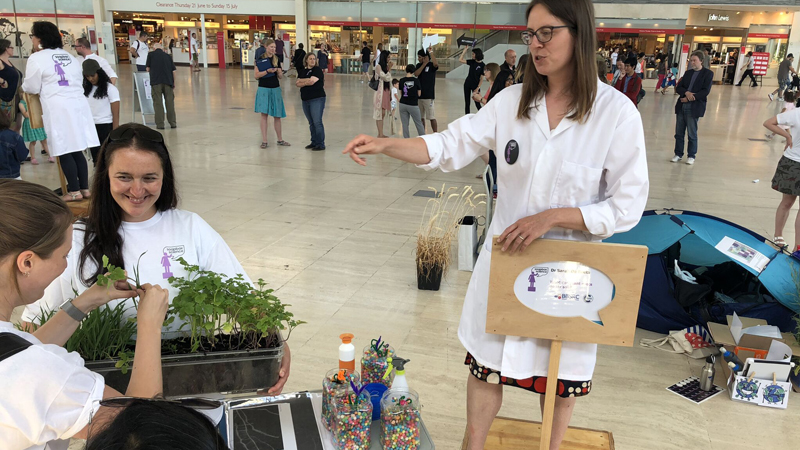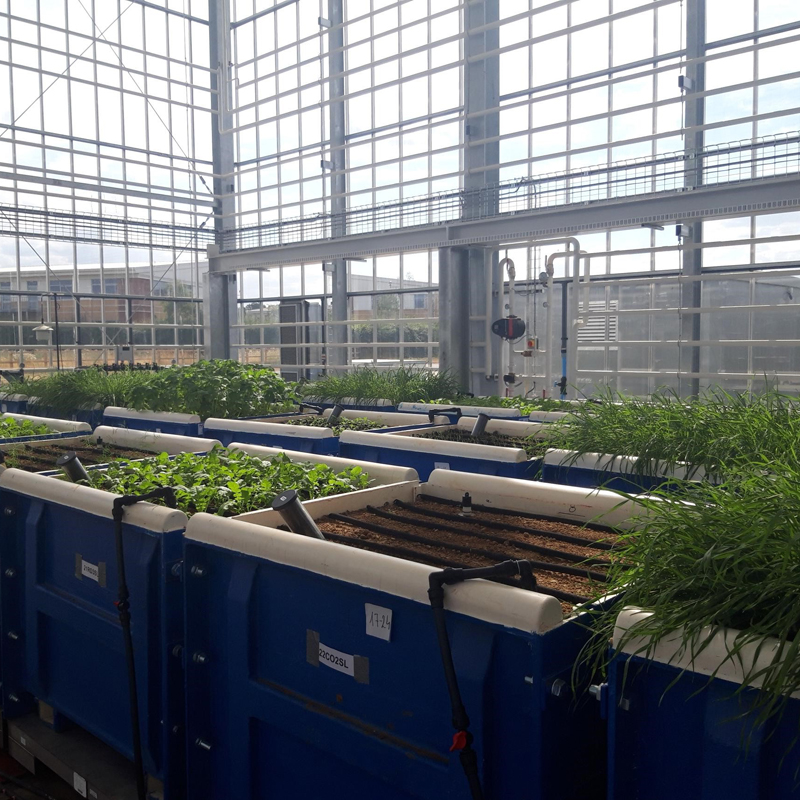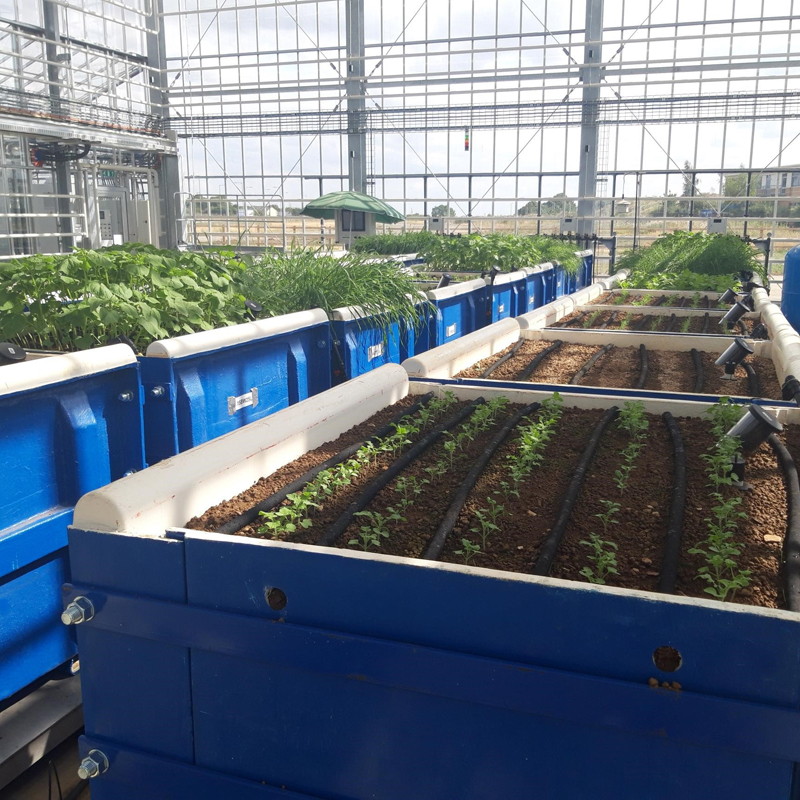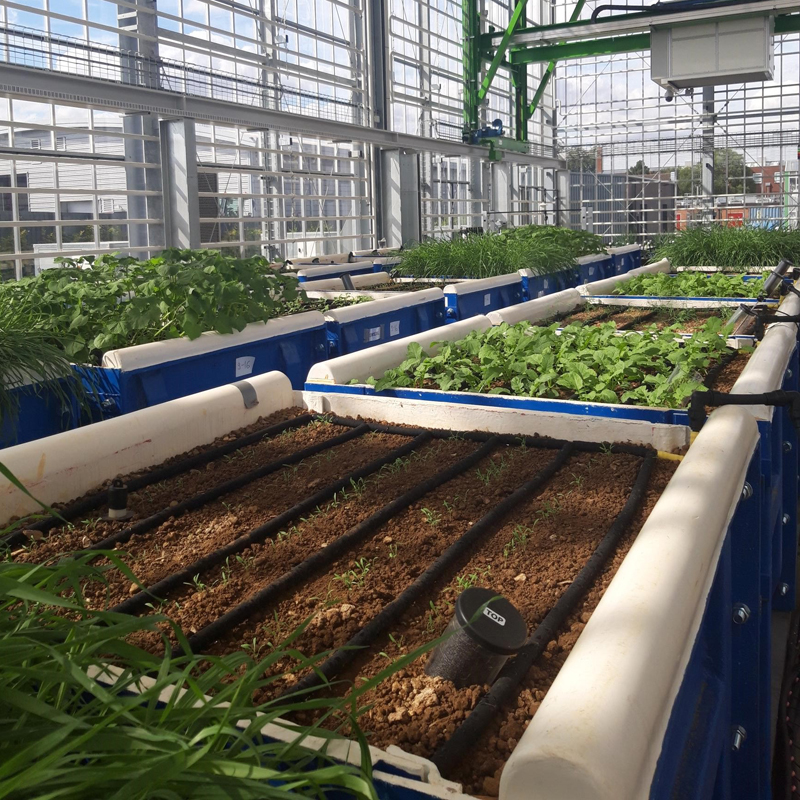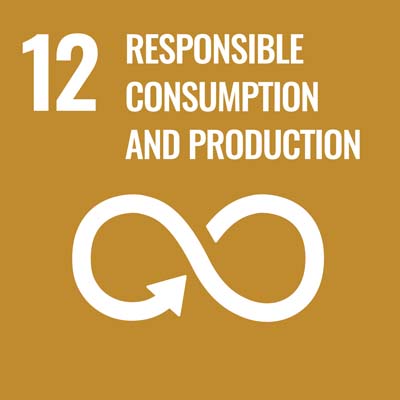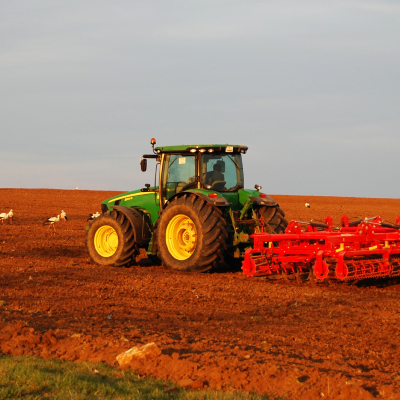In order to sustainably increase crop yields to feed the growing world population, and considering the challenges we are facing today due to climate change, we need to carefully manage our soil resources. Promoting measures to manage soils better whilst reducing costs will also help farming businesses remain competitive and profitable. Instead of burning fossil fuels to drag more steel through the ground, this research will harness the power and properties of plant roots to engineer soil for optimised crop growth.
Roots can bio-engineer soil because they can bind soil particles together, providing resistance against soil erosion by water. Roots can also improve soil infiltration and hence prevent runoff. Roots also absorb and release nutrients into the soil, allowing soils to improve their nutrient status and to reduce environmental side effects. Last but not least, roots break up the soil and create pore spaces when they decay. These macro-pores aerate the soil and make its structure more crumbly. So roots can act as a surrogate for machinery and hence reduce the number of tillage operations.
Cover crops are a way for UK growers to address the current Greening Rules that require them to: maintain minimum soil cover, minimise land management to limit erosion and maintain organic matter levels. They are fast growing species, planted between two cash crops, which have the ability to boost soil health and reduce the negative impact of agro-management on the environment. They are usually planted immediately after harvest and left to grow all winter; they cover and protect the soil surface against erosion and die off or are destroyed in early spring to make way for the cash crop.
There has been an increasing interest in research to support the application of cover crops. However, current estimates indicate that only 8% of all arable land used for spring cropping in the UK adopts winter cover crops in the rotation. This is because robust science that provides evidence of the multiple benefits of cover crops is lacking.
Novelty and aims
Past research has successfully linked agronomic productivity to above ground plant traits. More recent studies also investigated root traits and demonstrated their important effect on several single soil functions such as aggregate stability and water availability. No study has looked at the effects of root properties of cover crops to synergistically enhance multiple soil functions and no study has provided a robust methodology to combine complementary root traits in plant communities and to model their effects on multiple soil functions.
The main aim of this study is therefore to develop a novel framework to select and combine complementary root traits in cover crops that prevent soil resource losses and improve crop growth conditions.
To develop the model, root screening will be performed with 7 common cover crops grown in big soil monoliths, filled with real soil, grown under controlled laboratory conditions. The plants are grown in sandy clay loam with a subsoil compaction treatment. A series of root properties (e.g. rooting depth, root hair density) will be carefully determined, and we will use a DNA technique, qPCR, to determine the proportions of root biomass of each species within a plant community.
Output
The key deliverable of this research will be a novel model that will allow the design of combinations of plant species with complementary root traits that prevent soil erosion, mitigate runoff and improve soil structure and nutrient status for optimised crop growth.
Planned Impact
This research will deliver new insights into how cover crops species can synergistically work together to protect soils against degradation and to ensure that soils remain a sustainable resource for food production. Current estimates indicate that only 8% of all arable land used for spring cropping in the UK adopts winter cover crops in their rotation. There is thus a huge commercial imperative from a range of businesses for robust data relating to cover crop selection and species/mixture performance. This research could therefore have significant impacts on the agribusiness sector as well as on environmental policy makers as it will build their capacity to promote growing cover crops. Seed companies able to produce and supply cover crop seeds (including breeding novel cultivars), would benefit from further understanding and an expansion of the cover cropped area.
Policy makers and other organisations such as the statutory levy boards, AHDB (Agriculture and Horticulture Development Board) or governmental organisations such as the Environmental Agency or DEFRA (Department for Environment, Food and Rural Affairs) and the Environmental Agency would benefit from the research as they are concerned about the status of the UK soils and in preventing and remediating soil erosion in order to avoid negative impacts on soil water quality and quantity.
Providing evidence for maintaining ground cover, organic matter levels and minimizing erosion is of particular importance to policy makers in the current political climate, as the negotiations for Brexit, mean new environmental policy documents will need to be written to replace the EU CAP rules. Research that strengthens the benefits of using cover crops will be important to get this agronomic measure written into the new greening rules post Brexit. Although crucial for sustainable food production and soil conservation, most of us don`t know what`s under our feet. Therefore, the broader public and especially children are also beneficiaries of this work and we will target them to disseminate the knowledge gathered in this project. This research will affect all of us indirectly, as when cover crops are shown to deliver multiple benefits to soils they might reduce tillage operation and chemicals and herbicides costs. This will significantly reduce the operating costs for the growers and impact on food prices.
To ensure that all the potential beneficiaries benefit from the research we will engage with them in a variety of ways.
The PI Sarah De Baets will be the project manager and will coordinate and co-deliver all impact activities. The PDRA`s and technicians working on this project will actively be involved in organising and delivering the impact activities, together with the PI. A steering committee comprising representatives from Cranfield University, ADAS and Agrii will oversee and guide the research. This will increase its impact and raise levels of awareness amongst key decision makers and organisations, particularly those identified as beneficiaries throughout the business, regulatory and government community.
For academics we will produce publications and attend and present at key conferences. For Industry and policy stakeholders we will present the project results on the steering committee meetings and on the national Agronomists conference, organized by AHDB. For growers and agribusiness we will demonstrate the performance of bespoke cover crop mixtures on field sites at three field demonstration open days. The PI will also participate at a soapbox science or local `World day of Soils` event and make a video for school children to raise awareness for soils and sustainable agriculture.
